- Home
- About
- Hospitals
-
Treatments
- Orthopedic & Spine
- Knee Replacement
- Carpal Tunnel Release
- Rotator Cuff Repair
- Meniscus Repair / Meniscectomy
- Total Hip Replacement (THR)
- Total Shoulder Replacement
- Arthroscopy
- Ligament Reconstruction
- Spinal Fusion
- Discectomy
- Laminectomy
- Spinal Decompression
- Vertebroplasty and Kyphoplasty
- Fracture Repair
- ACL Reconstruction
- Tendon Repair
- Osteotomy
- Amputation
- Pediatric and Adult Cardiac
- Neuroscience
- Oncology
- Nephrology & KTP
- Gastroenterology & Hepatobiliary
- Obstetrics and Gynaecology
- Infertility
- Dental & Maxillofacial
- Plastic & Cosmetic Surgery
- Rhinoplasty
- Blepharoplasty (Eyelid Surgery)
- Facelift (Rhytidectomy)
- Breast Augmentation (Mammoplasty)
- Breast Reduction (Mammoplasty)
- Breast Lift (Mastopexy)
- Liposuction
- Abdominoplasty (Tummy Tuck)
- Brazilian Butt Lift (BBL)
- Lip Augmentation
- Breast Reconstruction
- Cleft Lip and Palate Repair
- Scar Revision
- Burn Reconstruction
- Botox Injection
- Ophthalmology
- Otolaryngology (ENT)
- Endocrinology
- General and Minimal Invasive Surgery
- Pulmonology
- Rheumatology
- Urology
- General Medicine
- Ayurvedic Treatment
- Orthopedic & Spine
- Doctors
- Contact Us
Kidney Transplantation
Kidney Transplant is a
surgical procedure in which a healthy kidney from a living or deceased donor is
transplanted into a patient with end-stage renal disease (ESRD) or severe
kidney dysfunction. It is considered the best treatment option for individuals
whose kidneys are no longer able to perform their vital functions adequately. A
successful kidney transplant can significantly improve a patient's quality of
life and overall health.
Here's an overview of kidney transplantation:
Purpose: The primary purpose of a kidney
transplant is to replace the function of the patient's failing or
non-functional kidneys with a healthy kidney. The transplanted kidney can
filter waste products and excess fluids from the bloodstream, help maintain
electrolyte balance, and regulate blood pressure.
Procedure:
- Donor: Kidneys for transplantation can come from living donors or deceased donors. Living donors are typically family members or individuals who are compatible and willing to donate a kidney. Deceased donors are individuals who have voluntarily donated their organs or whose families have consented to organ donation.
- Surgical Procedure: The surgical procedure involves the removal of the donor's kidney (either living or deceased) and its transplantation into the recipient's lower abdomen. The new kidney's blood vessels are connected to the recipient's blood vessels, and the ureter (tube that carries urine from the kidney to the bladder) is connected to the recipient's bladder.
- Immunosuppression: After the transplant, patients typically require medications known as immunosuppressants to prevent their immune system from rejecting the new kidney. These drugs are taken for the rest of the patient's life.
Recovery and Post-Transplant Care:
- After the transplant, patients are closely monitored in the hospital to ensure the new kidney is functioning well and to manage any immediate complications.
- Recovery
and post-transplant care involve regular check-ups, medication management,
and monitoring for signs of rejection or complications. Patients are
encouraged to maintain a healthy lifestyle and follow a prescribed diet to
support kidney function.
Benefits:
A successful kidney transplant can provide a better quality of life, reduce or
eliminate the need for dialysis, and improve overall health. Patients often
experience increased energy levels, improved appetite, and fewer dietary
restrictions compared to dialysis.
Risks
and Complications: Kidney transplantation is a
major surgical procedure and is associated with potential risks and
complications, including rejection of the transplanted kidney, infection, organ
dysfunction, and side effects of immunosuppressive medications.
Living
Donor Kidney Transplant: In living donor kidney
transplants, a healthy kidney is donated by a living individual, often a family
member or a compatible volunteer. Living donor transplants have the advantage
of a shorter wait time and potentially better outcomes.
Kidney
transplantation is considered the gold standard for the treatment of end-stage
renal disease, as it can offer improved life expectancy and a better quality of
life compared to long-term dialysis. The success of a kidney transplant depends
on various factors, including the compatibility of the donor and recipient, the
quality of the organ, and the patient's overall health. Patients with kidney
failure should discuss the option of kidney transplantation with their
healthcare providers to determine the most suitable treatment approach.
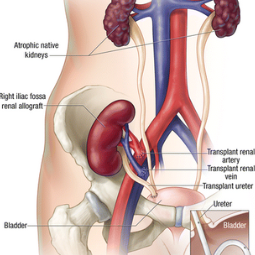


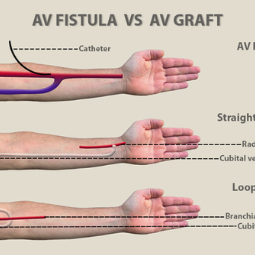
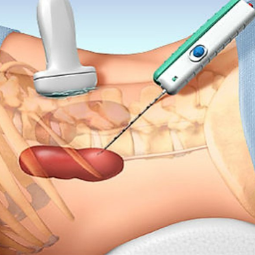
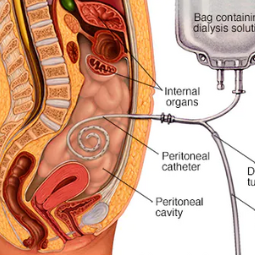
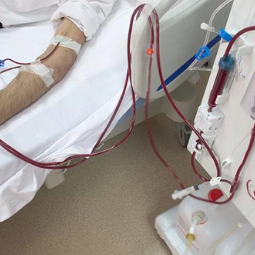
.png)